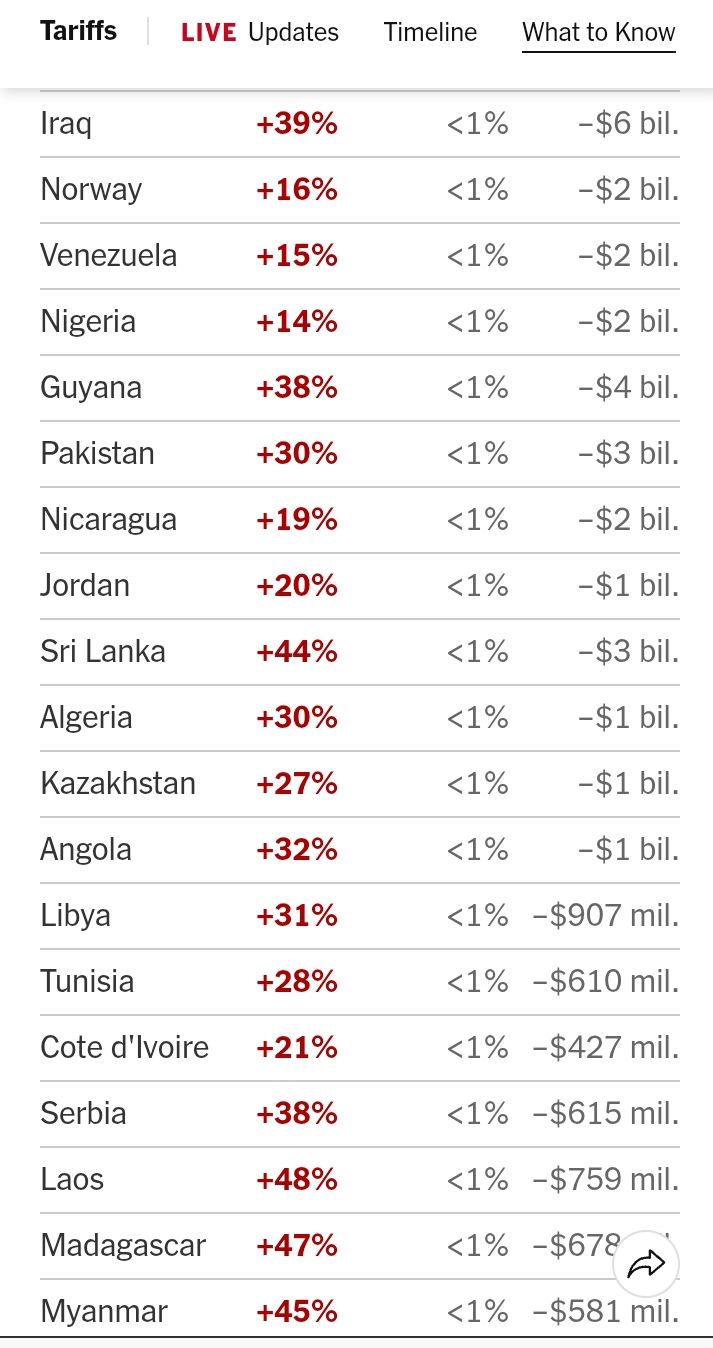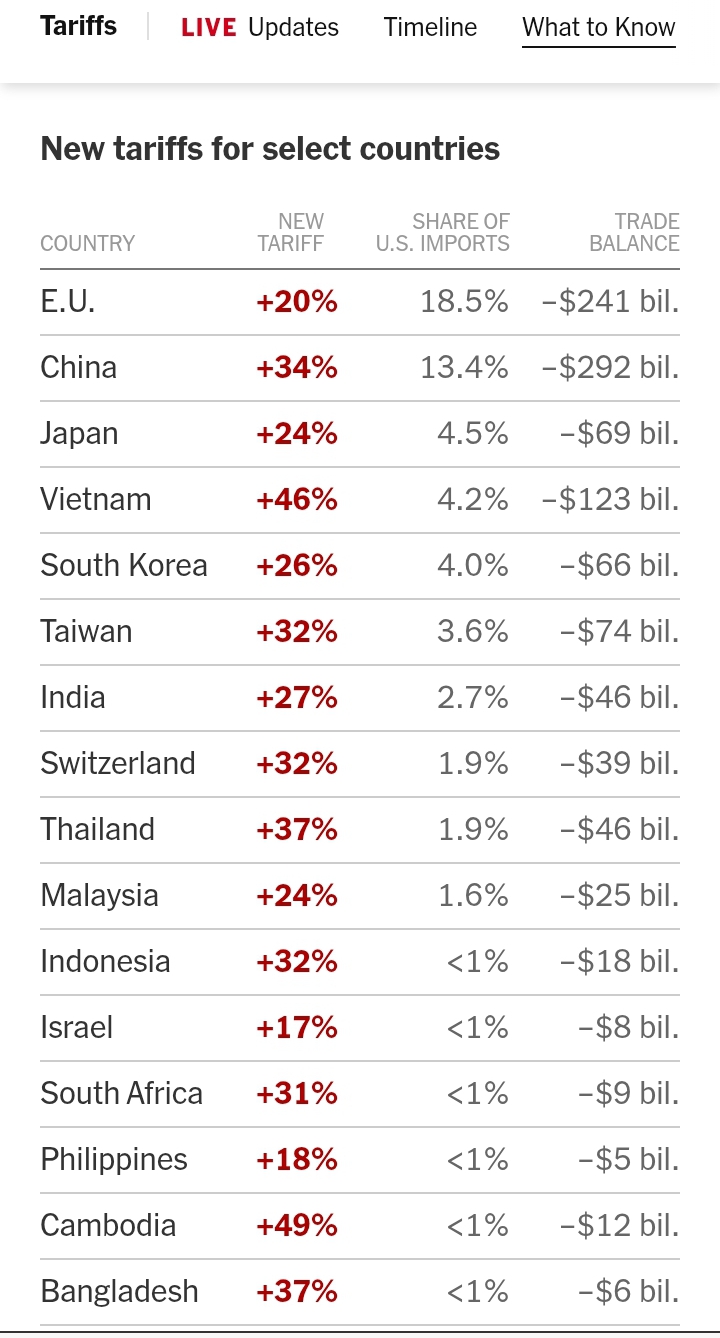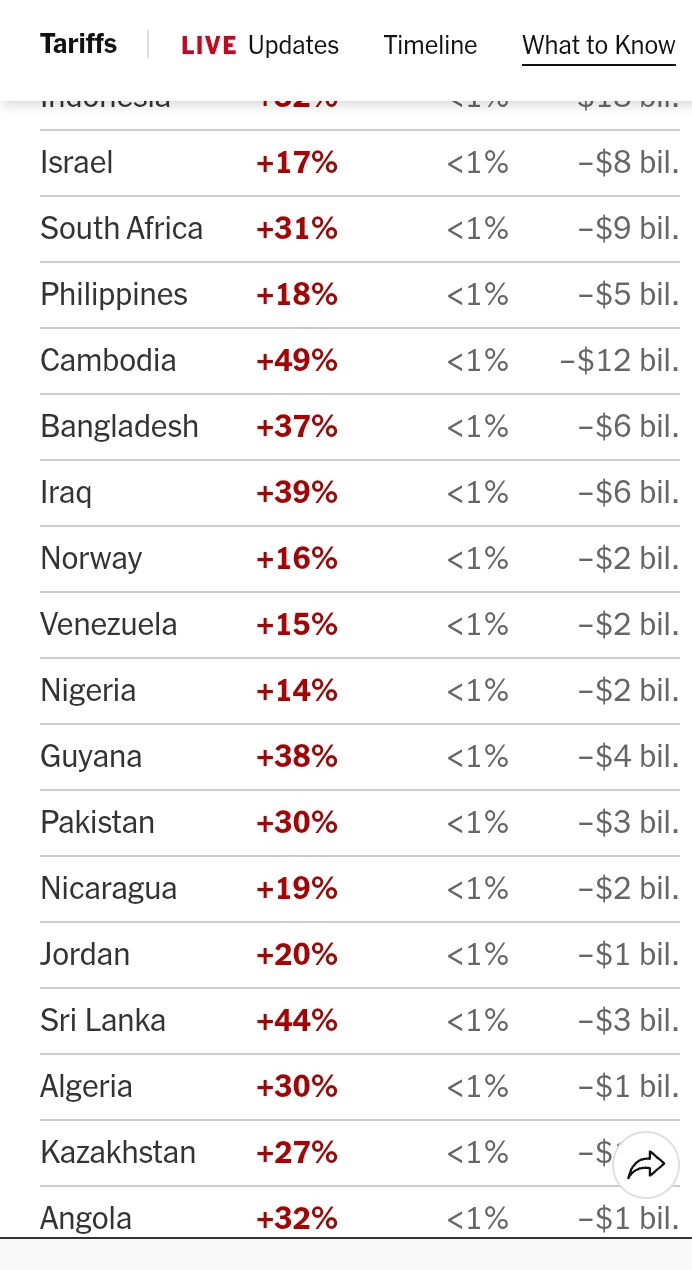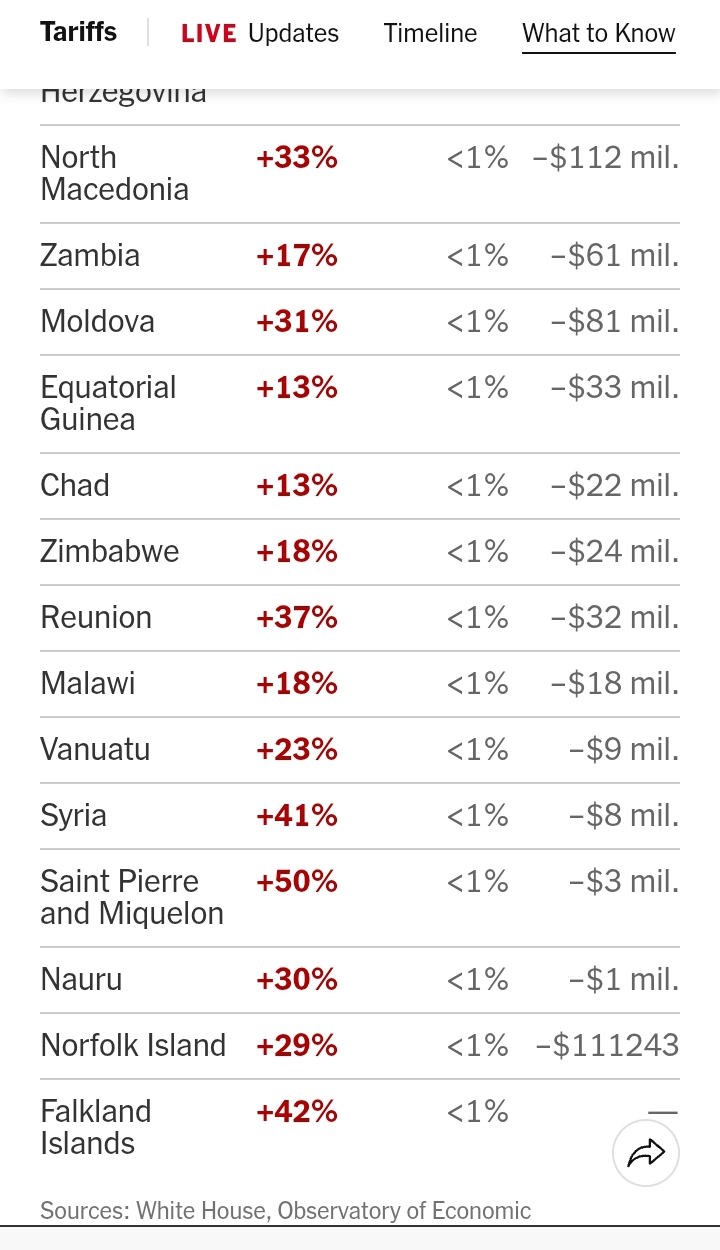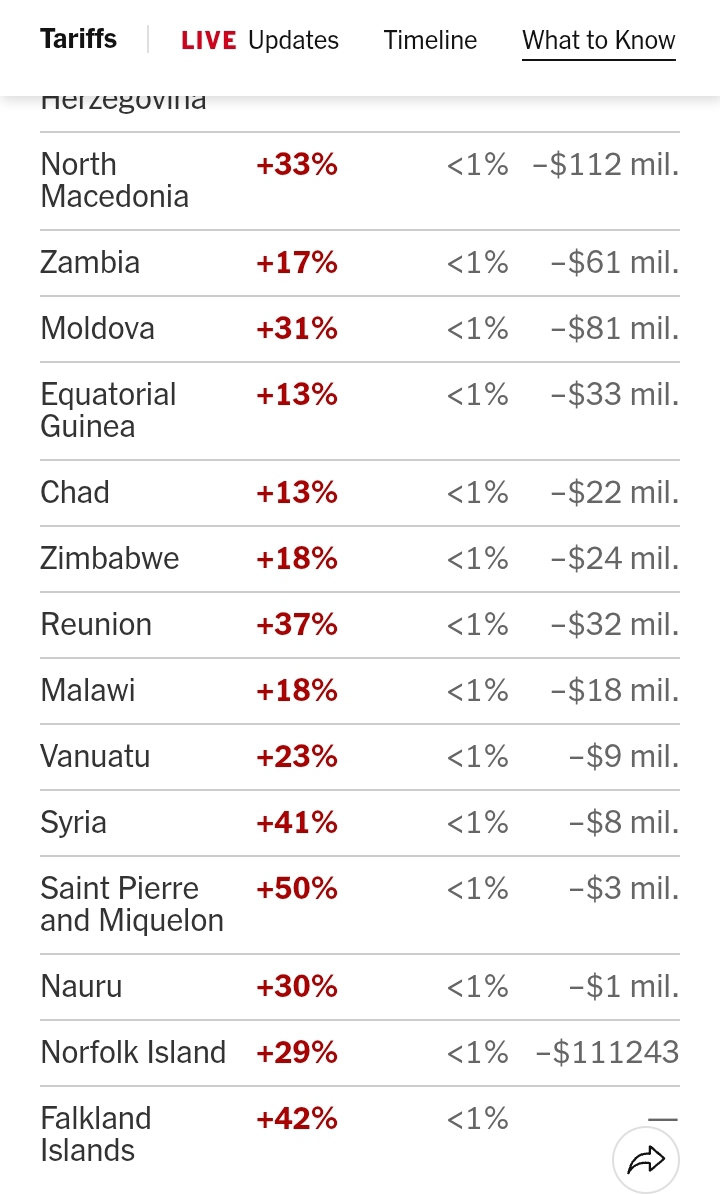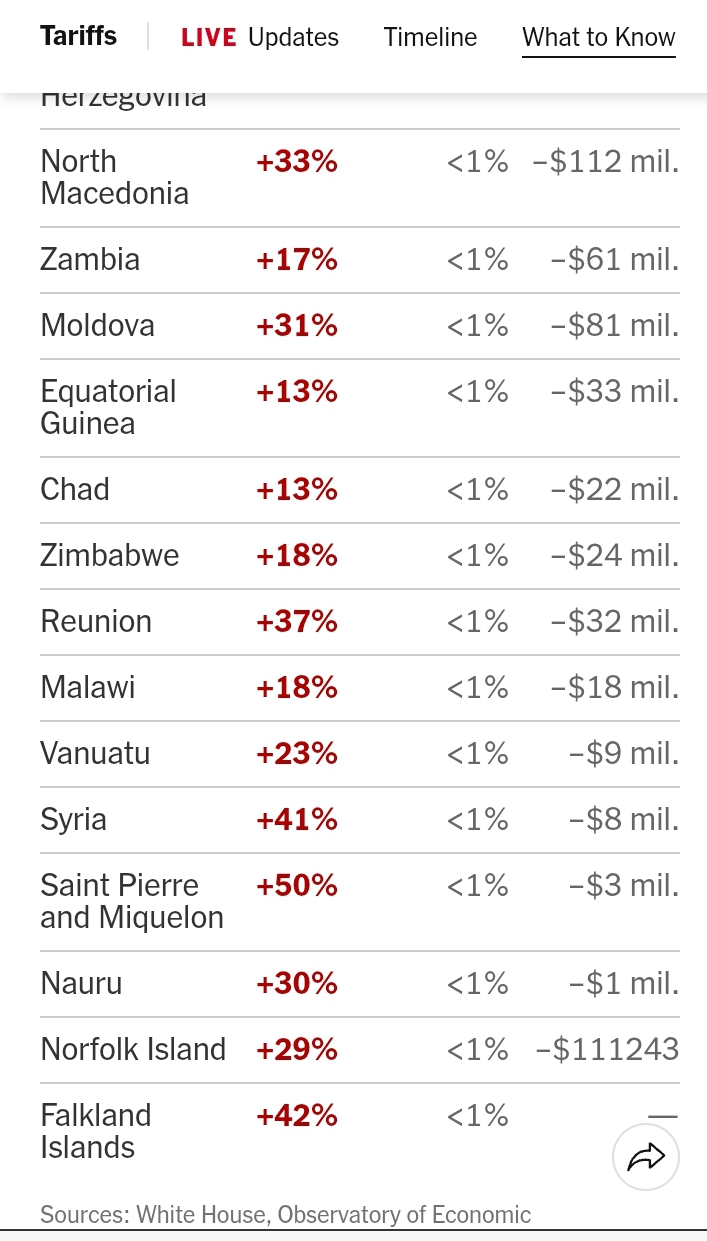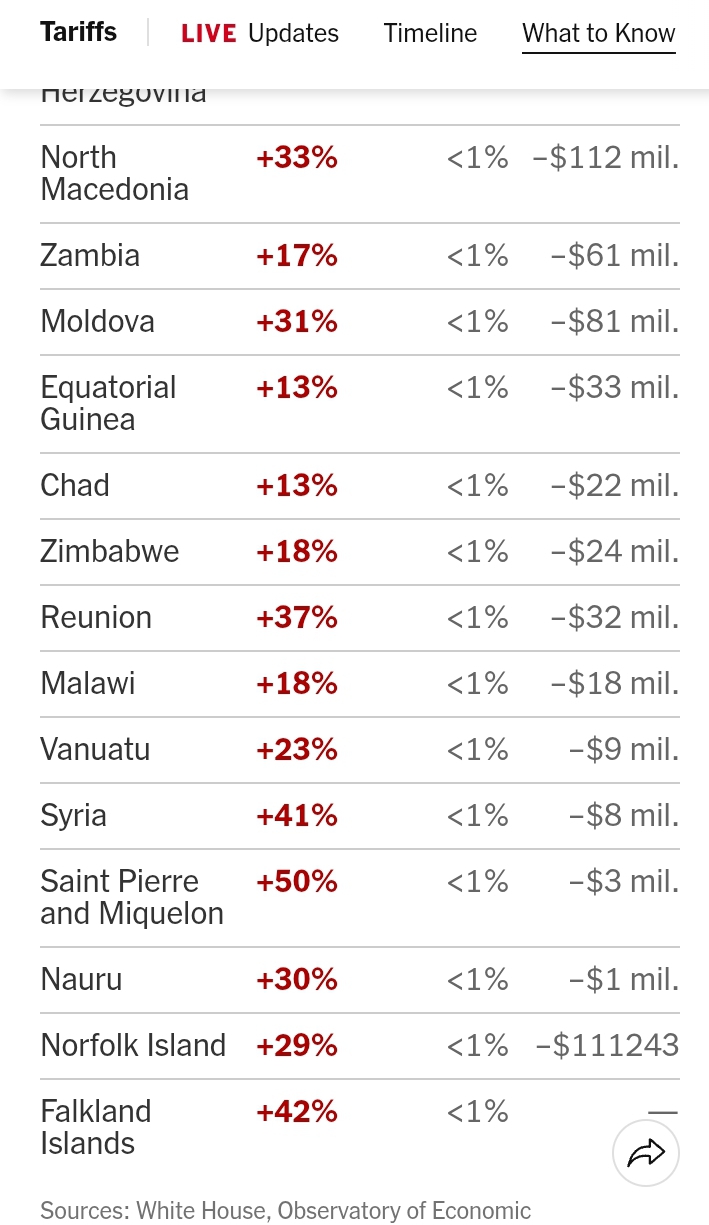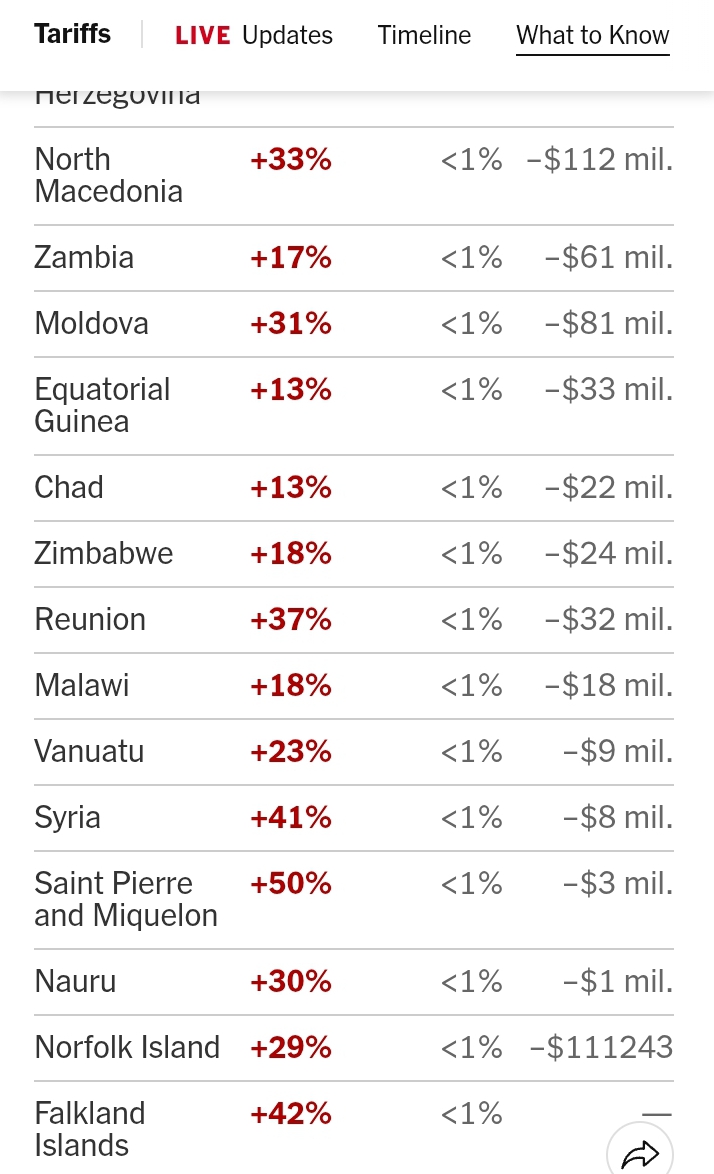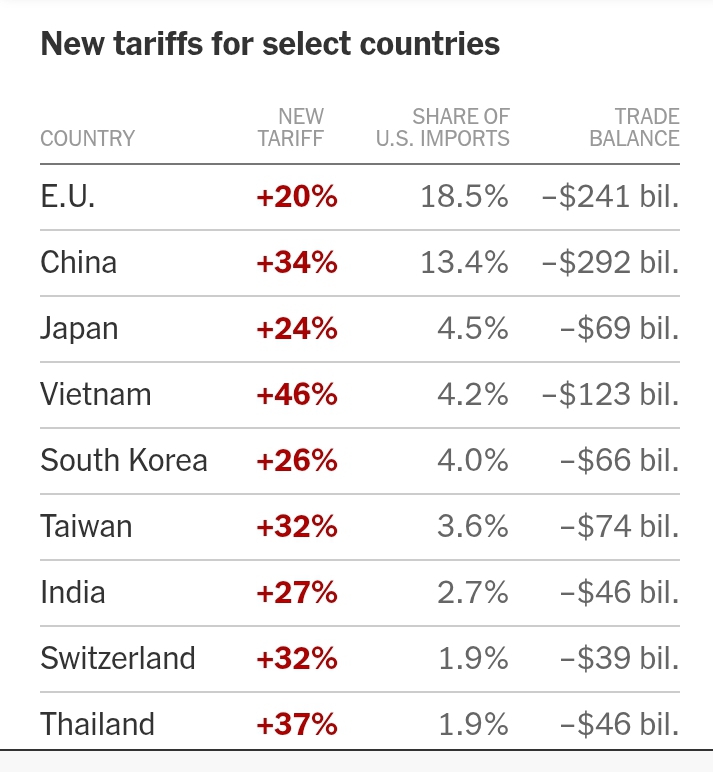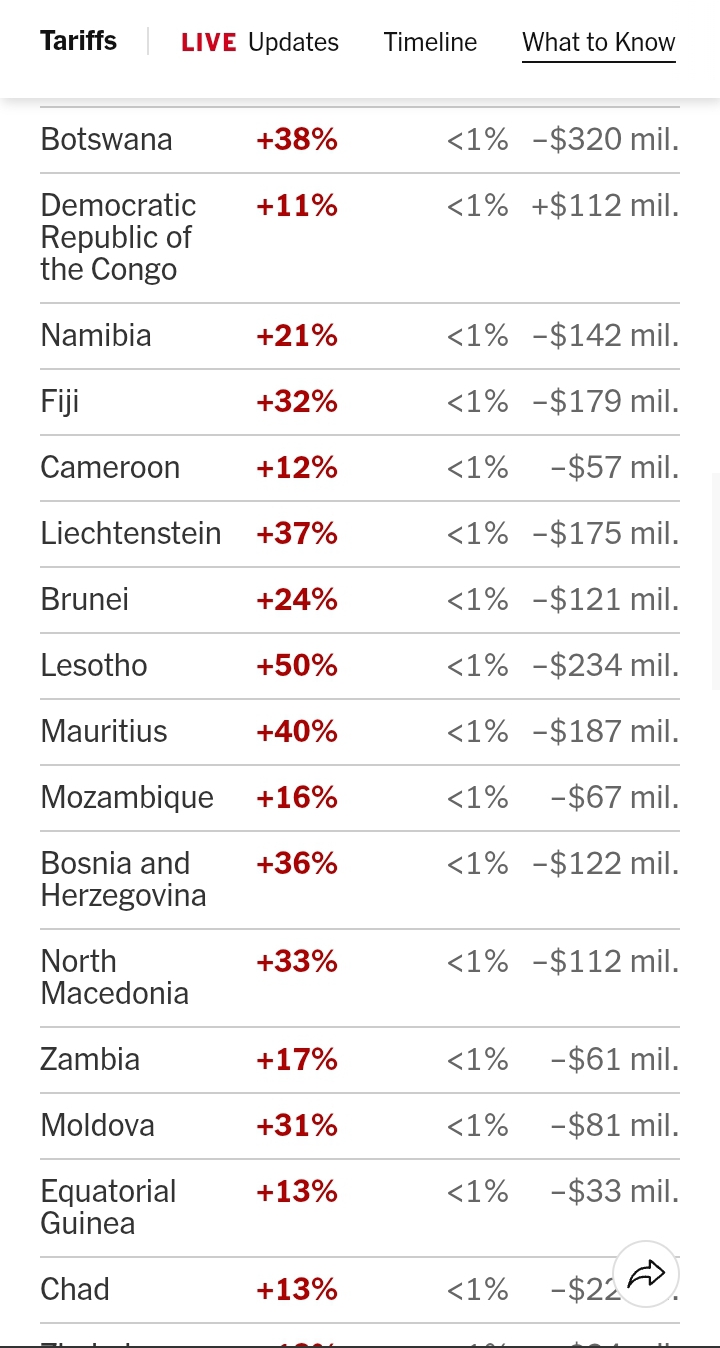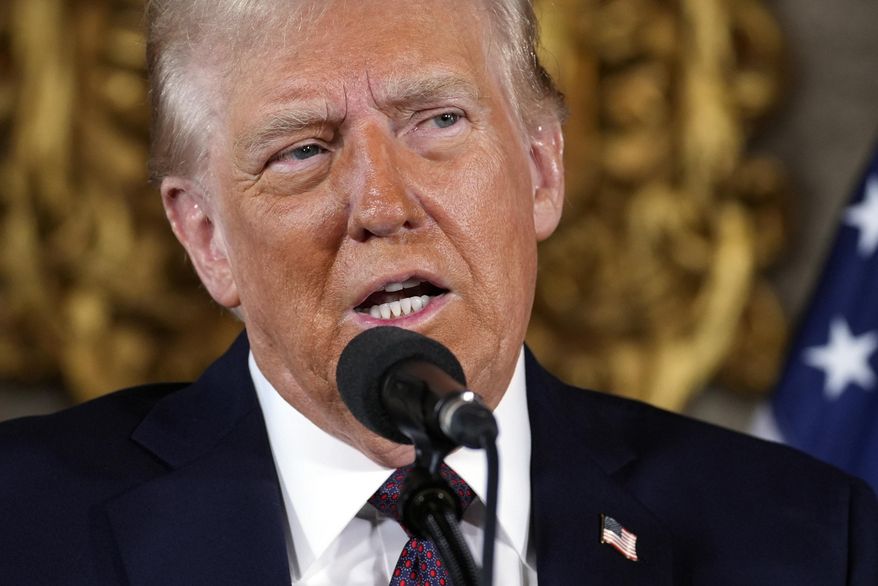President Donald Trump has introduced a new wave of tariffs on imports from multiple countries, significantly raising trade barriers in an effort to boost American manufacturing and revenue.
The tariffs target major trading partners, including China, the European Union, Japan, and several others.
Some of the highest tariff increases include:
China: 34%
European Union: 20%
Vietnam: 46%
Cambodia: 49%
Canada and Mexico are exempt from the new tariffs.
The announcement was made at a White House event, just before tariffs on all foreign-made cars took effect.
These tariffs are much higher than expected and could lead to price increases for American consumers and businesses.
Many countries affected by these measures are expected to retaliate, potentially triggering further trade disputes.
The Trump administration argues that these tariffs will protect American industries from unfair trade practices and reduce the U.S. trade deficit. However, critics warn that higher tariffs could disrupt supply chains and make everyday goods more expensive.
The global response to these tariffs will determine their overall impact. If trading partners impose their own tariffs on U.S. exports, industries such as agriculture and manufacturing could be affected.
Meanwhile, American companies that rely on imported material so may face higher costs.
